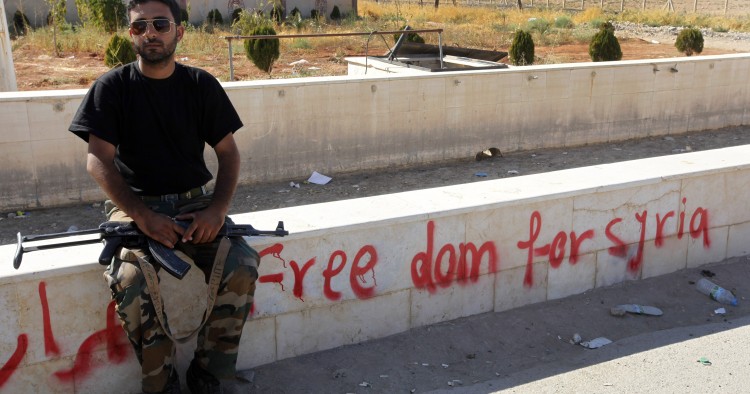As Russia and Turkey are trying to broaden the scope of the upcoming peace talks on Syria, Tehran says it opposes the inclusion of the United States in the meeting scheduled for next week in Kazakhstan.
“We have not invited America and we oppose their presence,” Foreign Minister Javad Zarif told Tasnim News Agency, an outlet affiliated with the Islamic Revolution Guards Corps (IRGC), on January 17. On the same day, President Hassan Rouhani was even more provocative when he was asked why Washington and Riyadh were not involved in the Syria talks: “Some countries are not attending the talks, and their role was destructive. They were helping the terrorists.”
The latest remarks by Iranian leaders came as Turkish and Russian foreign ministers recently stressed that the incoming Trump administration should be included in the Astana meeting, which is set to begin on January 23. “We think it would be the right thing to invite the representatives of the UN and the new US administration to the meeting,” Russian Foreign Minister Sergey Lavrov said at a press conference today.
In late December, the Iranian government had also rejected requests by Moscow and Ankara to include Saudi Arabia in the Astana discussions. "They (Saudi Arabia) are seeking to topple the existing regime. No talks should be allowed with those who are eager to do it. We must give them a decisive answer," Iranian Defense Minister Hossein Dehghan had said in an interview with Russian Today television. He also ruled out any collaboration with the United States in the fight against the Islamic State in Syria and Iraq. “Maybe the coalition forces would like to see terrorists weakened, but certainly not destroyed, because those terrorists are their tool for destabilizing this region and some other parts of the world,” he alleged.
The Iranian government has not made it clear whether it will participate in the Astana talks if the Trump administration accepts Moscow’s offer. Tehran has not signed the Syrian ceasefire agreement brokered by Moscow and Ankara, and Iran-backed militias violated the agreement during the evacuation of civilians and rebels from Aleppo last month.
The latest remarks by Iranian leaders indicate that Tehran continues to hinder international efforts to find a peaceful resolution to the Syrian civil war, which has killed about half a million Syrians in the past six years, and prefers a military solution the Syrian crisis. As Ankara and Moscow are working on a potential political settlement in Syria, Iranian leaders are urging Damascus not to slow down the military campaign against rebel groups. In a meeting with visiting Syrian Prime Minister Imad Khamis in Tehran earlier today, Ali Shamkhani, a top advisor to Supreme Leader Ali Khamenei, cautioned that the opposition forces might take advantage of the ceasefire and peace talks. “Syria’s enemies must not be allowed to tactically exploit the opportunity of ceasefire and political talks to reinforce, rearm and fund terrorist groups and rebuild their operational capabilities,” Shamkhani, the Secretary of Iran’s Supreme National Security Council (SNSC) warned.
The Middle East Institute (MEI) is an independent, non-partisan, non-for-profit, educational organization. It does not engage in advocacy and its scholars’ opinions are their own. MEI welcomes financial donations, but retains sole editorial control over its work and its publications reflect only the authors’ views. For a listing of MEI donors, please click here.













